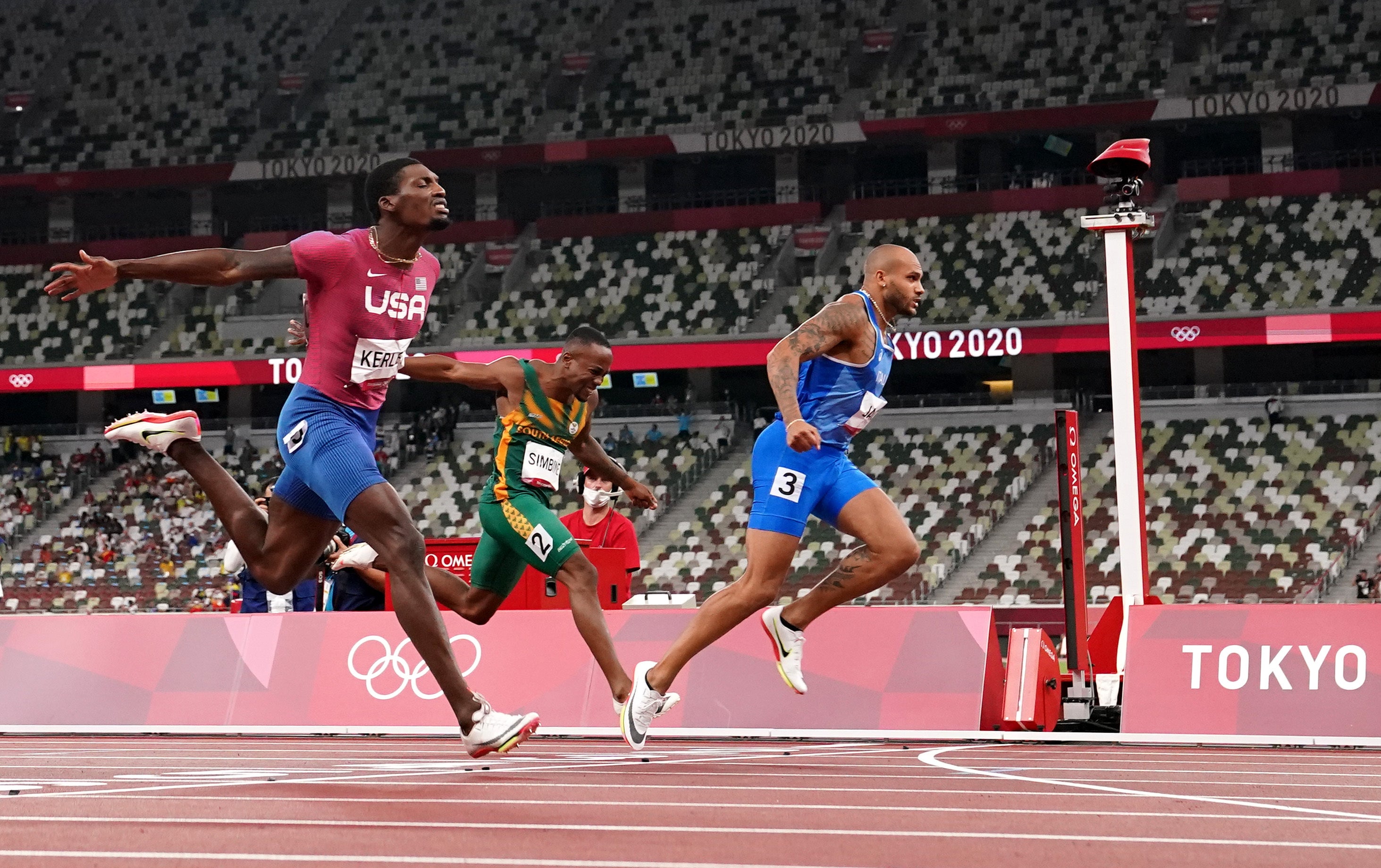
Marcell Jacobs was at the forefront of the men’s Olympic 100m final from the gun, but his journey to the start line came from the shadows.
As he crossed the finish, the fingers of the many hundreds in the Olympic Stadium and millions around the world turned to their screens and keyboards and opened Google. Usain Bolt’s reign was over, and the coveted title of World’s Fastest Man had been passed from a global icon to an Italian long jumper by trade who could have walked down any street in Tokyo that evening in blissful anonymity.
Who was he? Even his rivals weren’t sure. “It’s crazy when everyone runs so fast – 9.80 from the Italian guy, I didn’t expect that,” said bronze medalist Andre de Grasse. “I thought my main competition would have been the Americans, but he definitely came to play.”
“I really didn’t know anything about him,” said USA’s Fred Kerley, pipped to the gold by four-tenths of a second.
Jacobs had been dumped out of the semi-finals at the 2019 world championships in a distinctly unthreatening time of 10.20, but a decision to ditch long jump and focus solely on 100m soon bore fruit. He ran 10.10 last year in Italy and then broke the 10-second barrier for the first time in May. In Tokyo he put together the kind of championship every athlete dreams of, posting personal bests in each round with a 9.94 heat and 9.84 in the semi-finals, before the performance of a lifetime.
Afterwards, a picture emerged of a man with a personal story to tell. Jacobs demanded a tricolore flag from the Italian contingent in the stands as soon as he’d secured victory, gesturing like only an Italian truly can. He was born in America but his Texan father and Italian mother split when he was six months old, and he moved to Brescia with his mum – he says with conviction that he is “100 per cent Italian”.
He never knew his dad, but last year, aged 25, he decided to find him. “I lived all my life without a dad, and when people asked me, who is your dad? [I said] ‘I don’t know. I don’t know.’ My mental coach told me the first thing I needed to do was establish that relationship.”
Finally talking to his father, Jacobs said, had put him a better place. “We tried to start to have a new relationship with him. For me, that was really important. He watched the race. He wrote to me before the race, [saying] ‘You can do it, we are with you’.”

It wasn’t only addressing his absent father which helped Jacobs tap into his undiscovered talent. His psychology coach dug into his mindset on the biggest stage so that he might deliver outside of the small championships in Italy. “I really worked hard with my mind. Because when I was arriving in the really big moment, my legs didn’t work so good,” he said, perhaps helping to explain his struggles at the worlds two years ago. “Now, my legs go really good when it’s a big moment.”
They certainly did on Sunday night. Perhaps the oddest thing about the post-Bolt world is that this final didn’t move the sport on but served to underline his absence. The final line-up was a strange mix: China’s Bingtian Su is a 60m specialist, Kerley a 400m runner whose 100m credentials were widely doubted in the US.
And then there was Jacobs, a man who had never won an athletics title of note, who had spent most of his unassuming career to date jumping into sandpits. The men standing next to him barely knew who he was, but in 9.80 seconds he had told the world about Marcell Jacobs.
“I will tell my children they should go for their dreams. When I was a child I dreamed about winning an Olympic gold medal, and now...” Out of the shadows, into the light.







